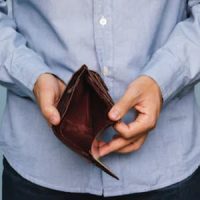What Assets Can You Lose in a Chapter 7 Bankruptcy?

Bankruptcy is rarely anyone’s first option for dealing with debt. Nevertheless, there usually comes a time where people simply cannot pay their bills. Searching for answers, many finally confront the possibility that bankruptcy makes the most sense.
One key concern, however, is what assets they will lose. Chapter 7 bankruptcy is not a free lunch. In exchange for eliminating certain unsecured debts, debtors end up losing assets, which will be sold for the benefit of creditors. Below, our Plantation bankruptcy attorney reviews some assets many people are afraid to lose.
Homes
There’s good news for Florida residents. Our state has a generous homestead exemption that keeps a primary residence outside the reach of creditors. Even better, homeowners can exempt the full value of the home—in most situations.
There are key limitations to the homestead exemption, however:
- It applies only to your primary residence. You cannot exempt a vacation home or other investment property.
- The home can’t be too large—no larger than a half-acre in a municipality or 160 acres elsewhere.
- You must have owned the home for at least 1,215 days before filing—a little over 3 years. If you haven’t, then you can only exempt up to the federal limit.
Cars
It’s possible you might lose your car if you file Chapter 7. However, in many cases you won’t. For example, many cars are worth less than the remaining balance on the car loan. This means there is no equity to give to your creditors, so the trustee will not take it.
Fla. Stat. § 222.25(1) also provides that debtors can exempt up to $1,000 in a car. So that might be enough to cover any equity you have. Also, Florida allows exemption of personal property up to $1,000, or up to $4,000 if you do not use the homestead exemption. When you stack these exemptions, you might be able to cover the full value of your vehicle.
Retirement Benefits
Pensions and retirement benefits are almost always exempt, including qualified retirement plans like 401(k)s and many self-employed plans, along with public pensions such as teachers’ retirement benefits and public employee retirement benefits. If you have a question about whether your pension is secure, contact a Plantation bankruptcy attorney before filing.
Cash
You could definitely lose cash in a Chapter 7 bankruptcy, but it depends on the source of the money.
Under Fla. Stat. §222.11, the wages for a head of a family are exempt up to $750 a week, sometimes more. This includes all wages you are earning going forward, as well as wages you have deposited in the bank account for the past six months. If you are not the head of a family, you can exempt some of your wages also, though probably not as much.
Unemployment and workers’ compensation benefits are also exempted under Florida law. But cash you have managed to save from working could definitely be vulnerable. You might have been building an emergency fund for several years, which could lose. If you have a lot of cash, discuss whether to file a different bankruptcy.
Contact Us for More Information
State law also provides exemptions for many other types of property, so schedule a consultation to learn more. At Nowack & Olson, PLLC, our Plantation bankruptcy lawyers ensure our clients understand what they will give up if they file for bankruptcy. Call to schedule a free consultation.
